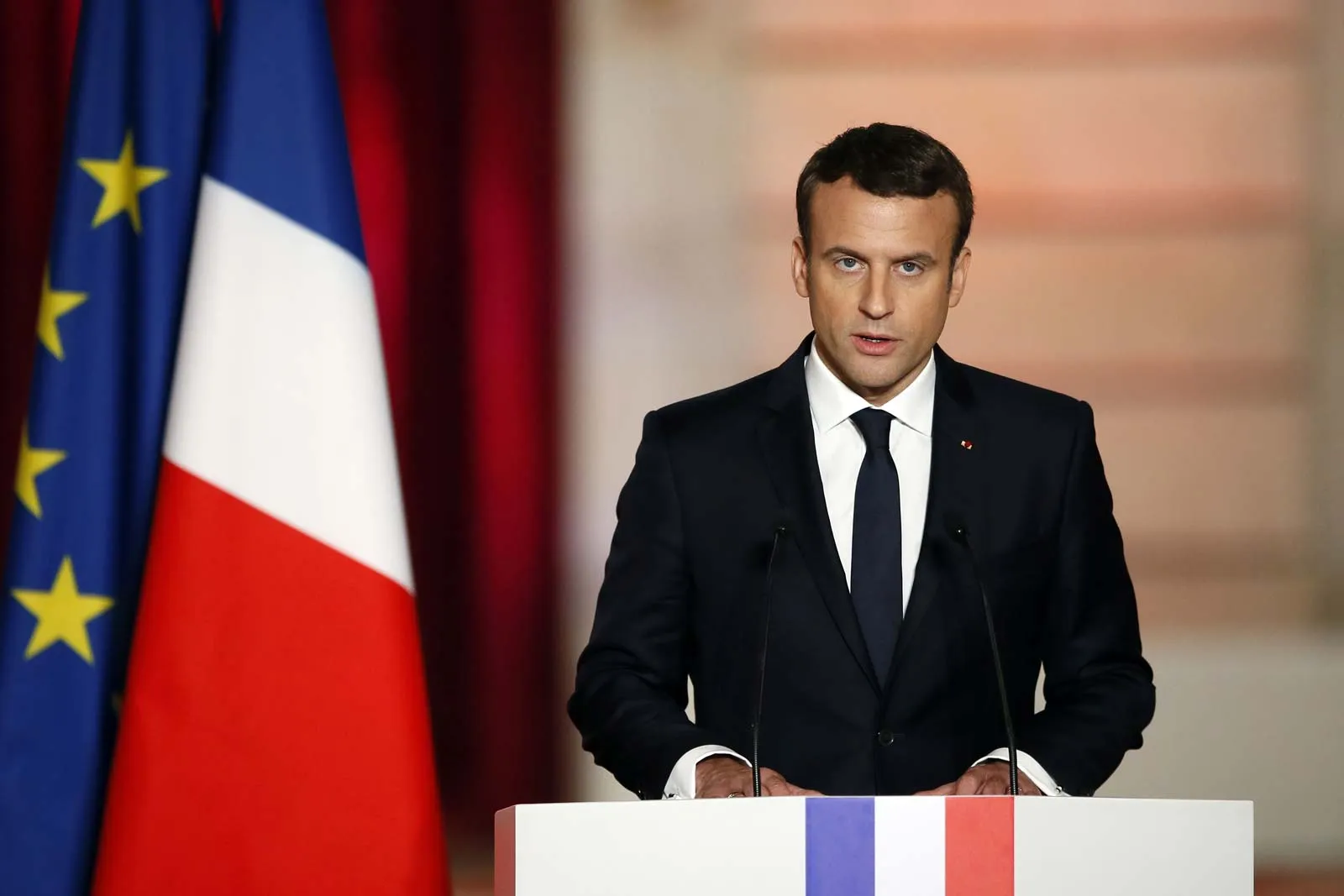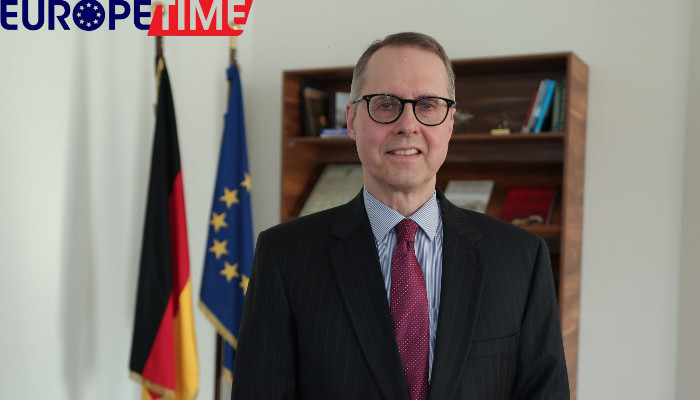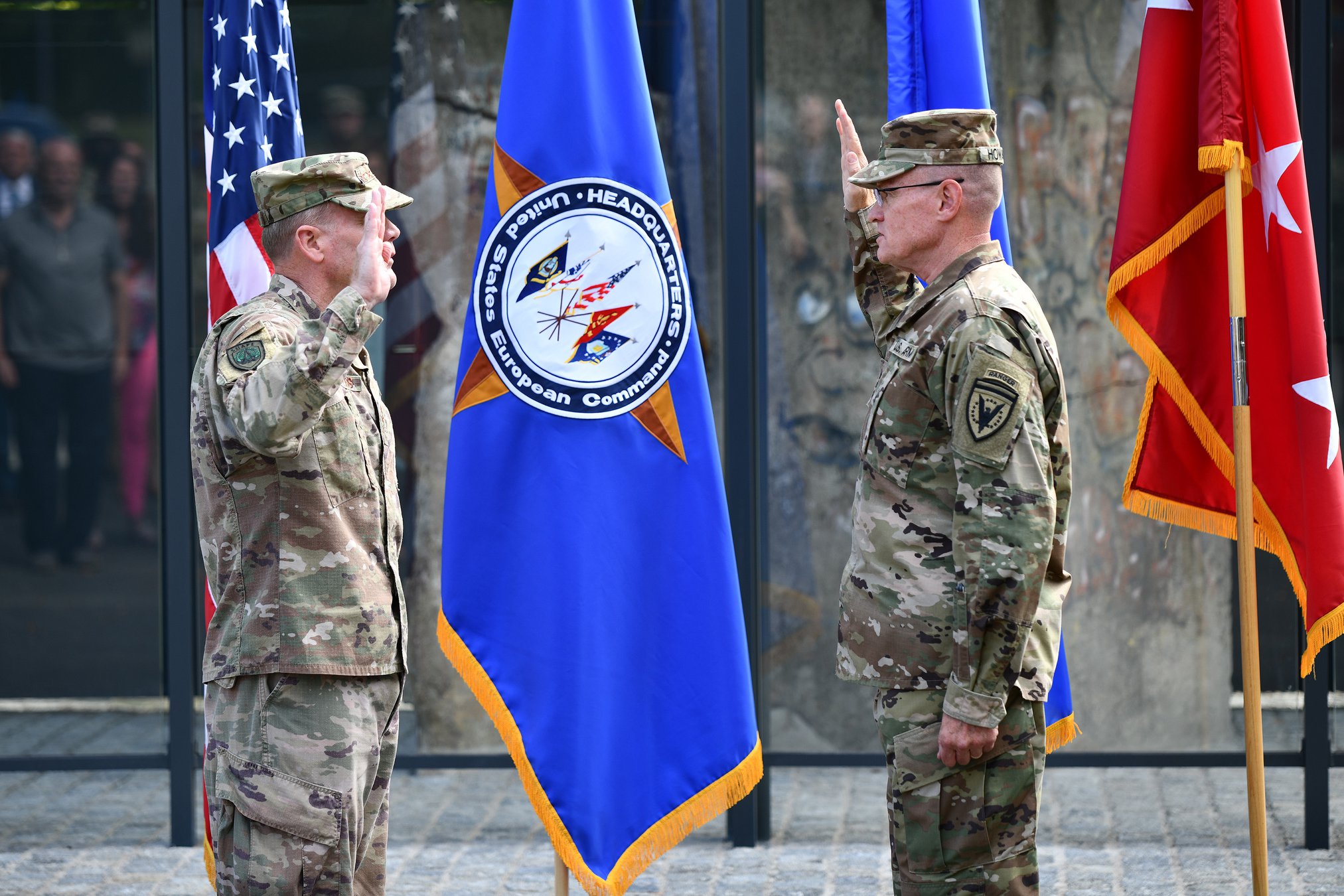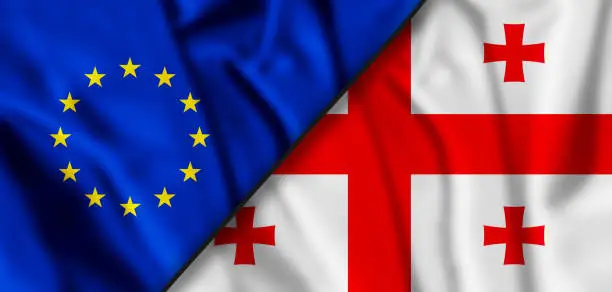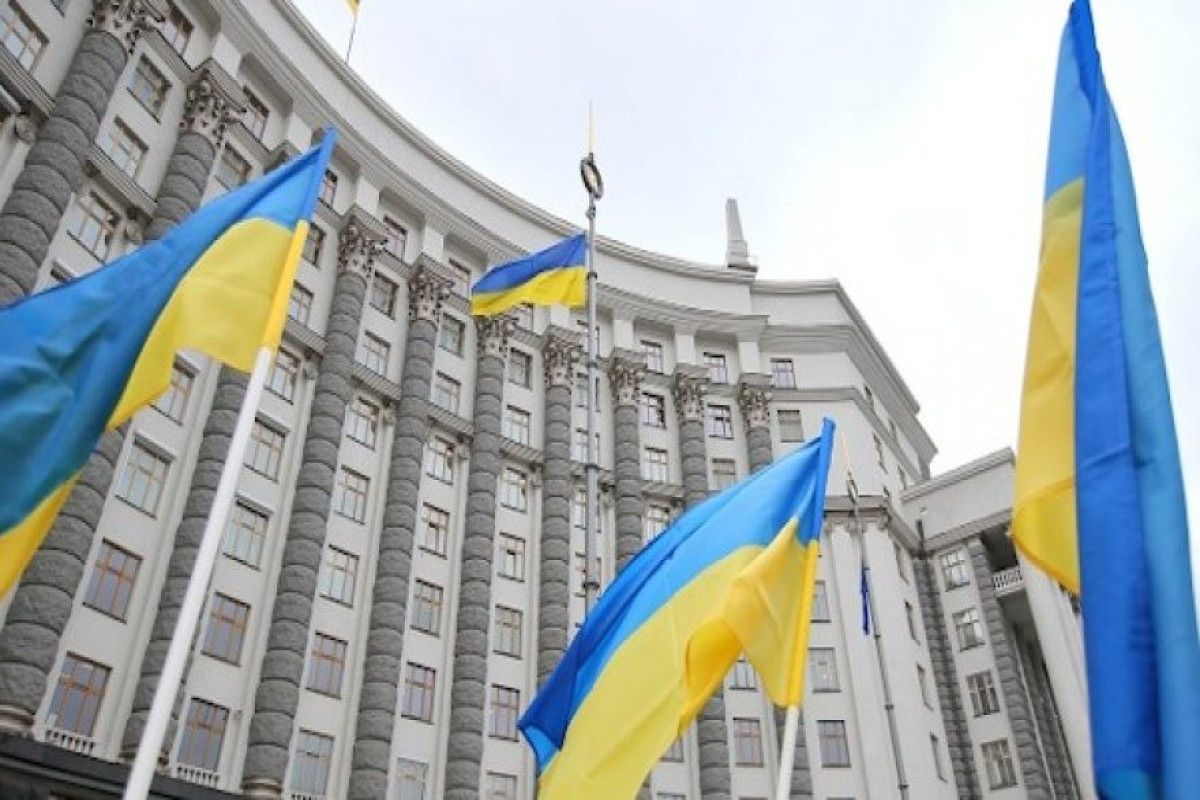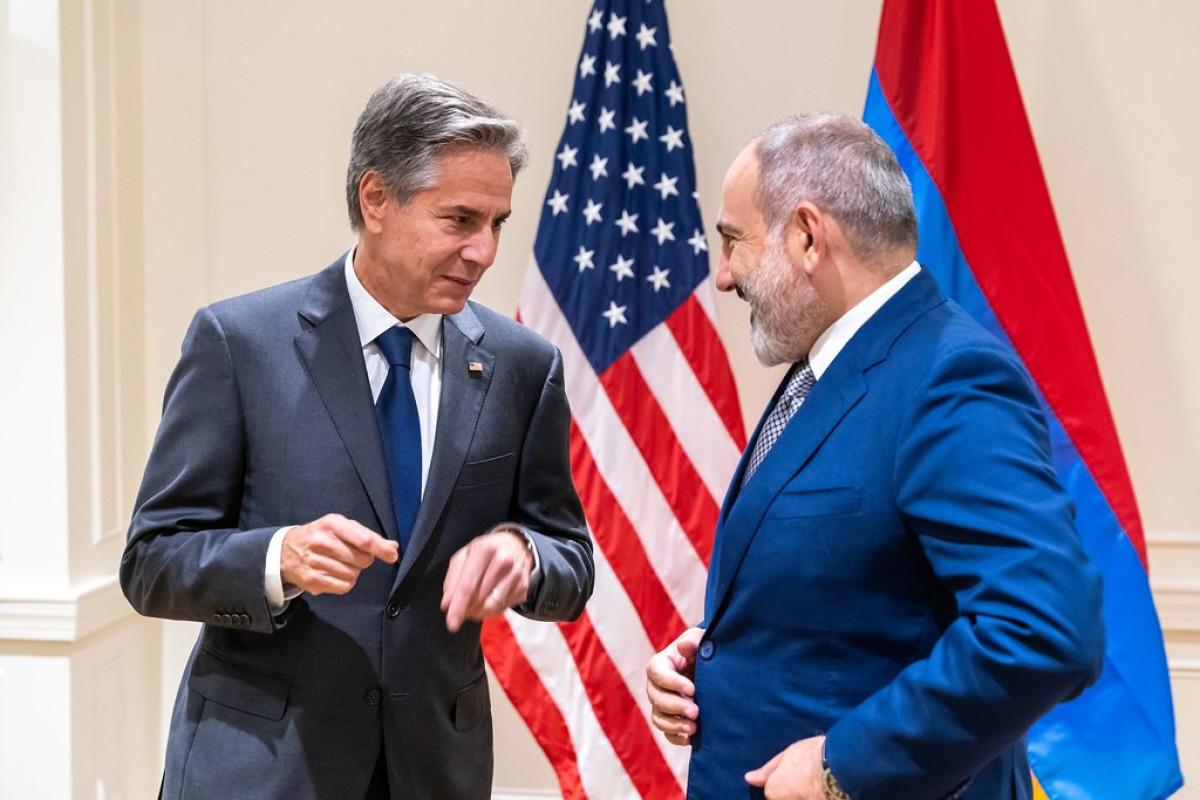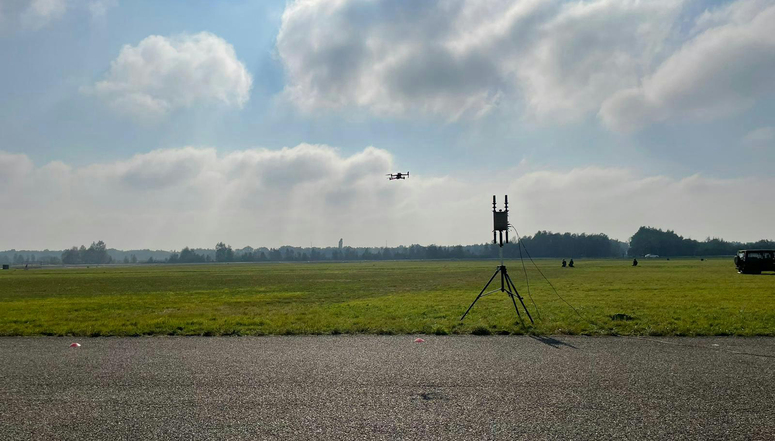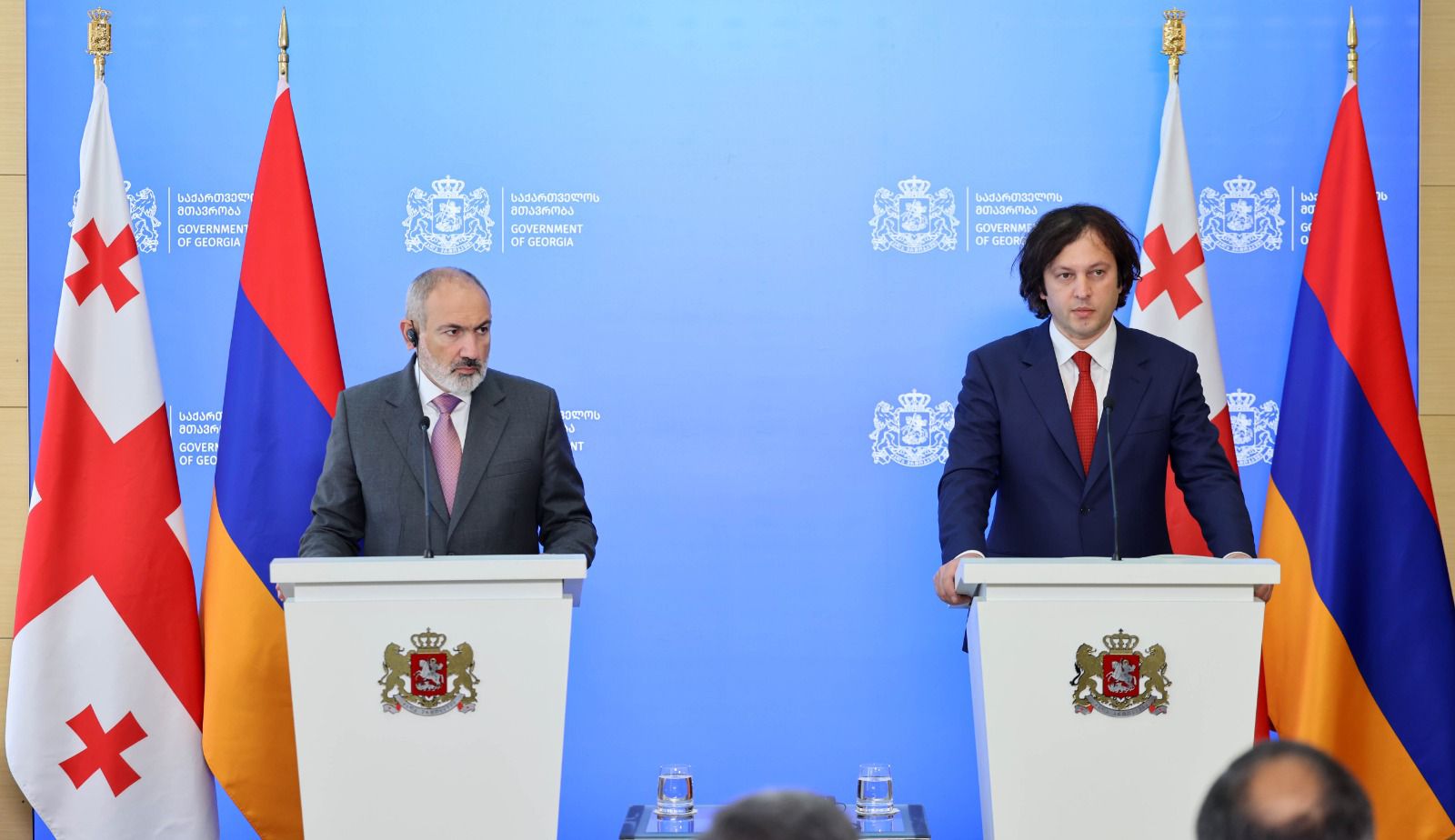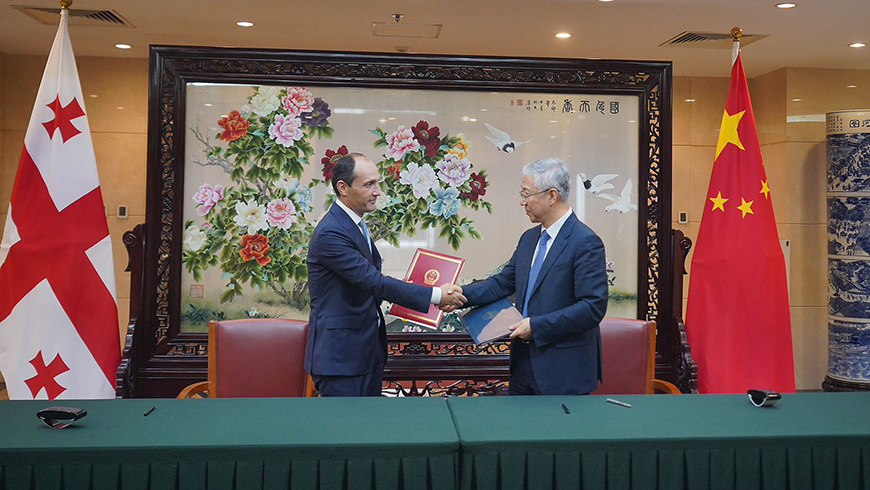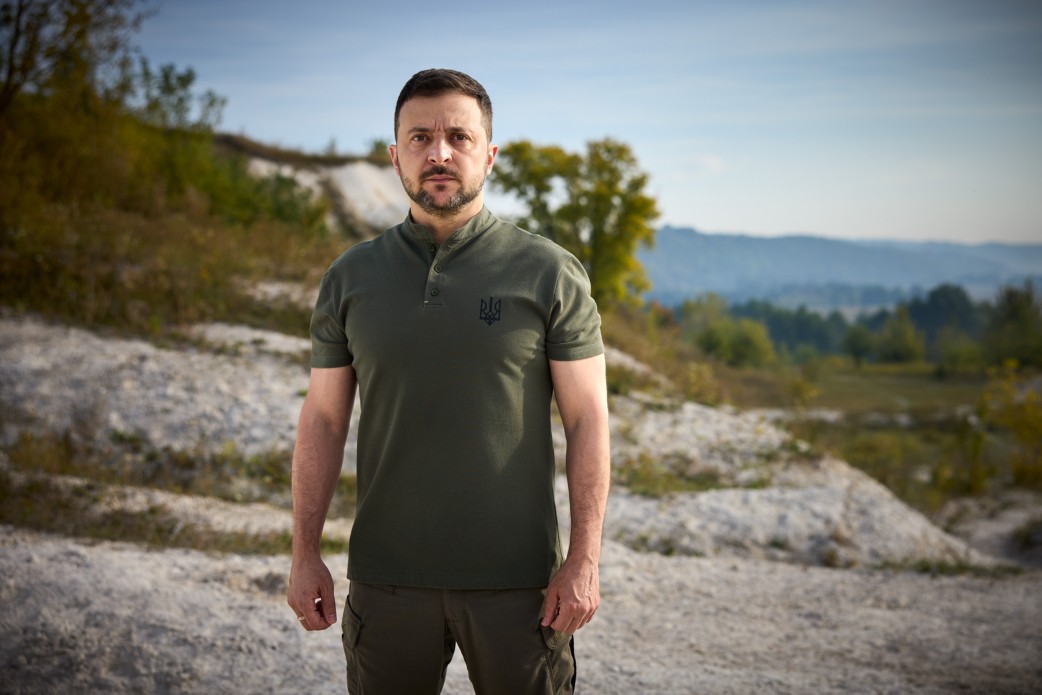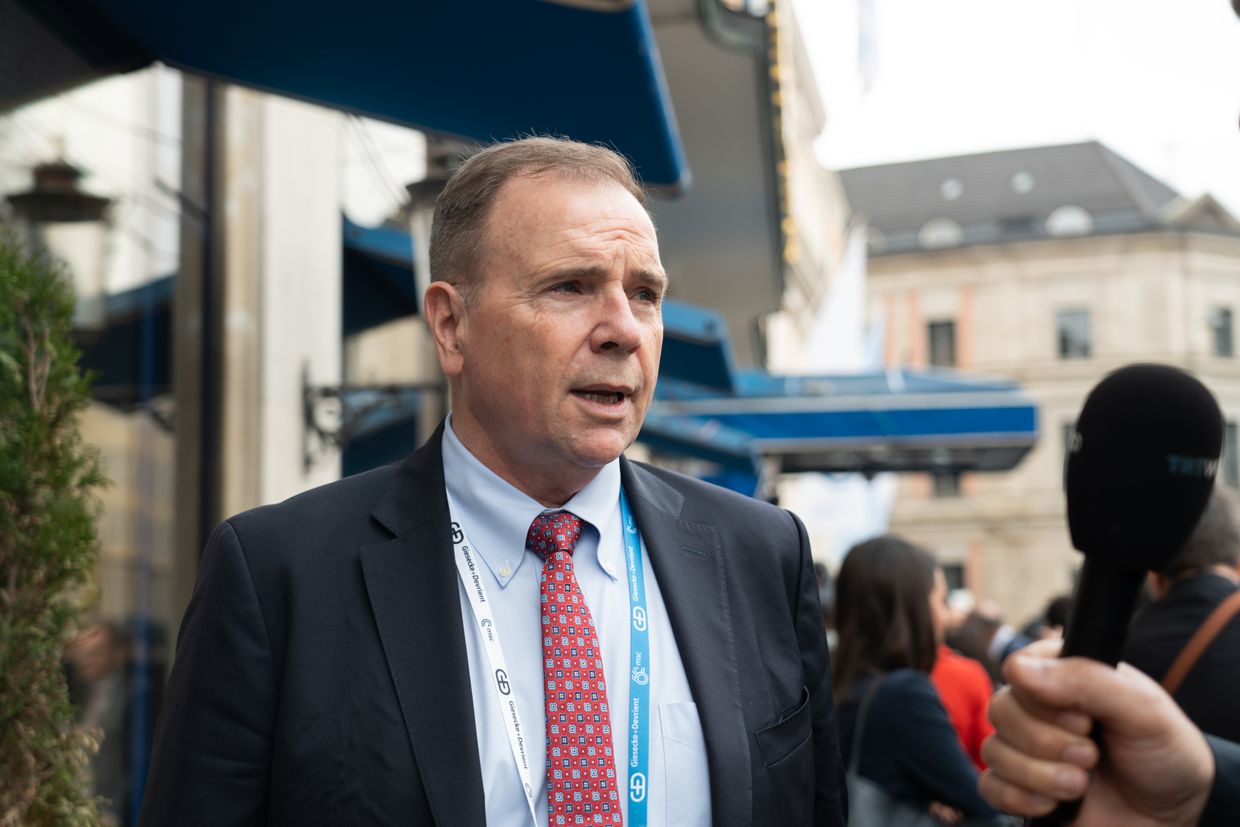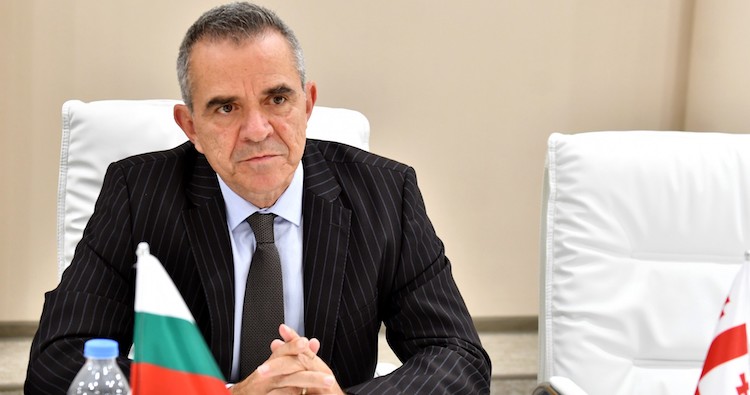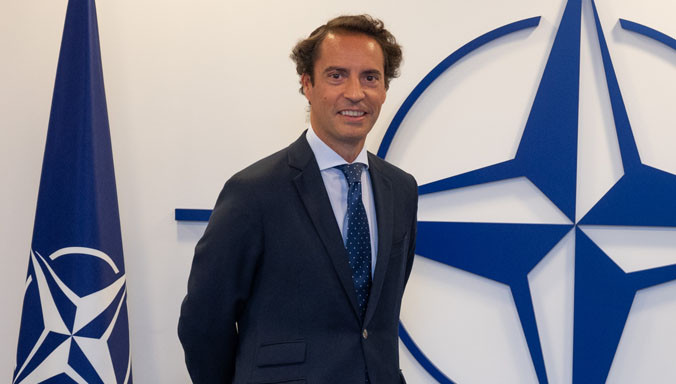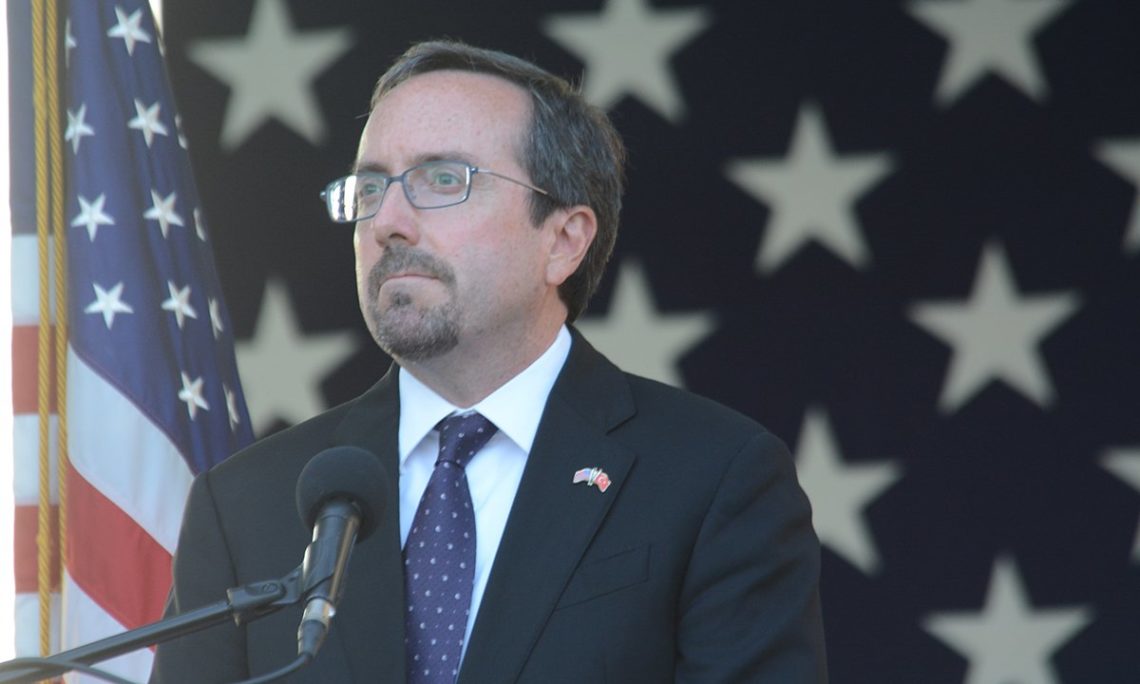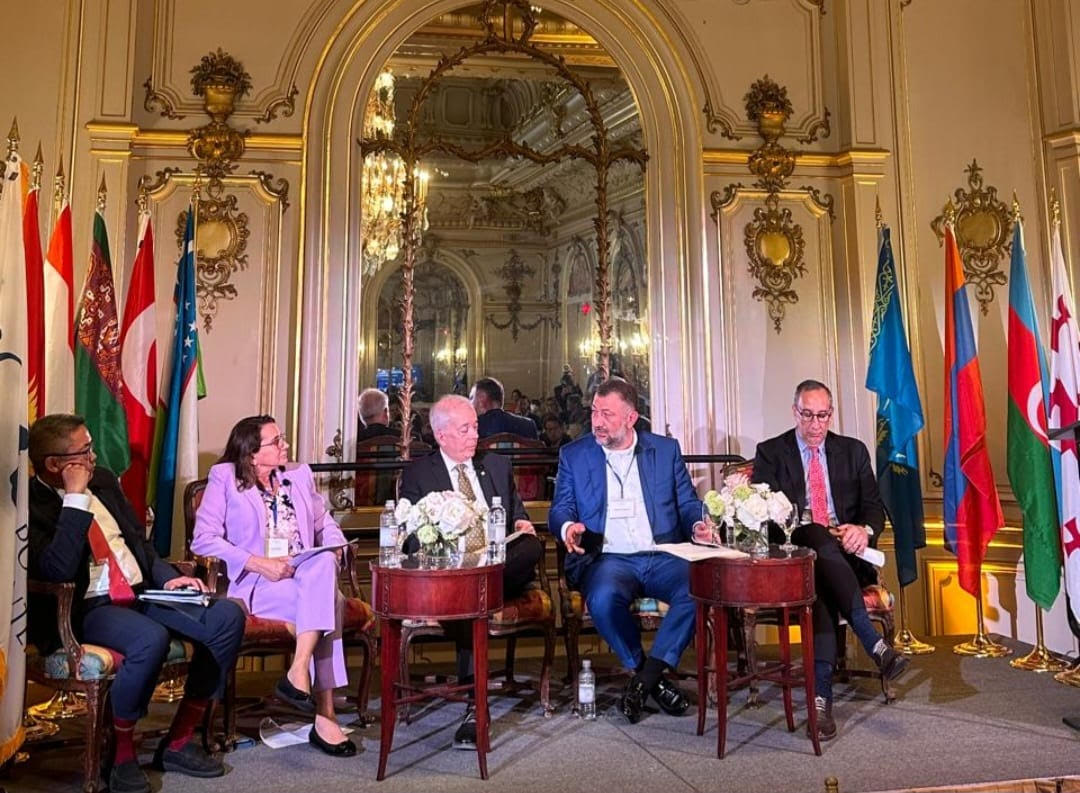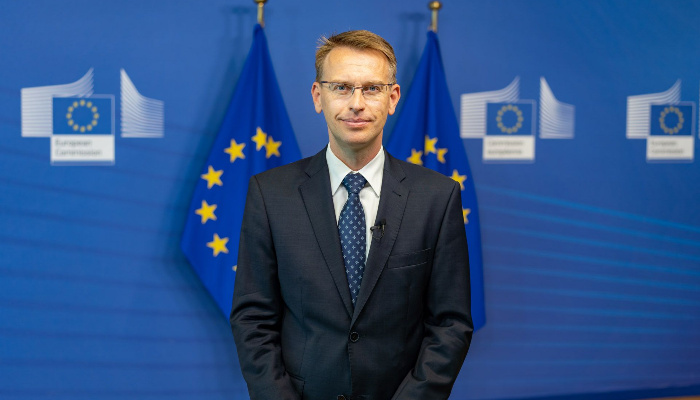news
French President: The Georgian government's drift leads to interruption of EU accession
“The Georgian government’s drift is leading to an interruption of the accession process,” said the President of France, Emmanuel Macron. According to the French President, the Georgian people will decide their future in the upcoming parliamentary elections. „We expressed our concerns about the situation in Georgia, where the government’s drift is leading to a de facto interruption in the accession process and where the Georgian people will have to express themselves in a few days,“ Macron said. On October 17, the European Council issued the conclusions of its meeting, reiterating its “serious concern regarding the course of action taken by the Georgian government, which runs counter to the values and principles upon which the European Union is founded” and reaffirming its support towards Georgian people’s EU aspirations. The European Council noted that “such a course of action jeopardises Georgia’s European path, and de facto halts the accession process,” and called on Georgia “to adopt democratic, comprehensive and sustainable reforms, in line with the core principles of European integration.” The Council stressed that it would continue monitoring the situation in Georgia closely. “The European Council expects the upcoming parliamentary elections to be free and fair, in line with international standards and with unhindered access for international and domestic election observers. The European Council stresses the need to protect a free, independent and pluralistic media,” emphasized the Council in its meeting conclusions. In addition, the Council also reaffirmed EU’s “unwavering support for Georgia’s sovereignty, independence, and territorial integrity within its internationally recognised borders,” and underlined the European Union’s “continued commitment to peaceful conflict resolution and its policy of non-recognition and engagement.”
German Ambassador: You are at risk of throwing away the opportunity to join the EU and the privileged partnership of the last 30 years
We love the European Union, it is truly a party of global peace, - said the Ambassador of the Federal Republic of Germany, Peter Fischer, during his speech at the event dedicated to the Unification Day in Germany on October 3. During his speech, the diplomat emphasized the importance of cooperation between Georgia and Germany. According to Peter Fischer, Germany does not want to interfere in the parliamentary elections of Georgia. „The Day of German Unity is a day of joy. It marks the success of a peaceful revolution and German unity in the Federal Republic of Germany - a liberal democracy, a state created with the dignity and freedom of every individual and the idea of European unity as top constitutional principles, in short: a pretty good place. The EU was foundational to bringing about our unity in peace. Today we live in friendship with all our neighbors, which is pretty incredible, considering our history. We love the EU. It is the basis of our peace, freedom and prosperity. It is truly the Global Peace Party. Today we are celebrating in Georgia, with our Georgian friends. So let me say a few words about Georgian-German friendship. For over 30 years we have built a partnership. This partnership is broad and deep and it was always based on your, the Georgians, wish to be a democracy, have a market economy and what you called Euro-Atlantic integration. Last year, I stood here with the Prime Minister of Georgia. He praised the value and quality of our partnership - with Germany and the EU. I agreed, but I also warned about the risk of Georgia missing her historical „rendez-vouz“ with Europe. A few weeks later Georgia was awarded candidate status for the European Union and on 14 December 2023 I stood with all my EU ambassador colleagues and the whole Georgian government on stage in front of a huge crowd on Freedom Square - and we were all very happy. Oh, how times have changed. Georgia’s EU accession process has come to a standstill, because of the course of the Georgian government. With this course Georgia will not be able to join the EU. This year, you'll notice: We have not invited any members of the Georgian government, no Members of the Georgian Parliament and no leaders of Georgian political parties. Why? Because we want to make clear that the election on 26 October is the election of and for the Georgians. We don't have any part in it. Speaking to the Georgians: You have to make up your minds what you want. How you want to be governed and which group of countries you want to belong to. It's all on you. Not on us. The door to the EU is open. We are a special union of liberal democracies. What does that mean? In liberal democracies our constitutions are built on the idea that no-one person or group has exclusive possession of what is true and what is good, what exactly the right way forward is. That is why we need freedom to choose, to advance with trial and error, to have what we call an open society. Of course, this happens based on experience of history, tradition and values including faith. We are convinced that this best way for creativity, innovation, productivity, prosperity, in short: happiness of the citizens. But how to join the EU? You have to take over all EU legislation. When you do, when the EU-laws are the law of the land here, you are a member. If you don't, you are not a member. It’s very easy to understand. And please believe me: It is us, the EU member states, that decide who joins and when. The candidates don’t make this decision. As a friend, and I believe there are many in this hall who can testify that I have always acted as a friend, I have to tell you: You are at risk of throwing away the opportunity to join the EU and the privileged partnership of the last 30 years. You decide. Let me add a personal view: Don't imagine, that if you turn away from us, we will come running after you, begging you to come back. In my analysis, the political trends are going in another direction. More and more people are becoming short sighted, egotistical. Their thinking is: „Us first“, or basically: „Only us“. They don’t care about international co-operation. They don’t care about EU enlargement. In other words: In the EU we have enough problems, we don't need another one. Sorry to be a bit dark. Actually, I am an optimistic guy. And now I am going to lighten up. Today we want to celebrate. In German we refer to The Day of German Unity as a „Feiertag“. That translates into „celebration day“. Let’s celebrate what is good about Germany. One of the best things about it is that we have friends. Including many friends in Georgia. Before I raise my glass for a toast, I would like to thank our sponsors. You can see their names on the display. They are doing incredible things in Georgia. Investing and re-investing, bringing technology, creating jobs, training their people, holding on to their people doing Covid, just being great German companies. Thanks also to the „Georgian German Jazz Alumni“ who will be coming back a bit later, so please keep your dancing shoes ready for that. Now I would like to raise my glass to Germany, to Georgia, to our friendship and hopefully a happy future together.“
USEUCOM: Georgia actively contributes to regional stability
The United States Embassy in Bucharest and U.S. European Command (EUCOM) hosted senior U.S. policymakers in Bucharest, Romania, January 22-23, to discuss U.S. foreign policy and diplomatic efforts, and security interests in the Black Sea Region. Senior U.S. diplomats, military leaders, and ambassadors engaged on critical security topics including Russia’s war against Ukraine, increased maritime mobility in the Black Sea Region, and regional plans for deterrence and defense. According to EUCOM speaking with Europetime „Georgia actively contributes to regional stability through its involvement in NATO initiatives and exercises, leveraging its strategic location in the South Caucasus to safeguard energy routes and address security challenges.“ „The Department of Defense maintains strong security ties with Georgia's Ministry of Defense and the Georgian Defense Forces. Georgia actively contributes to regional stability through its involvement in NATO initiatives and exercises, leveraging its strategic location in the South Caucasus to safeguard energy routes and address security challenges. This partnership benefits NATO and Europe by providing a reliable partner that promotes security, stability and shared values in a complex geopolitical environment. For all questions related to foreign policy and diplomatic efforts in the Black Sea region, the U.S. Embassy in Georgia, and Ambassador Dunnigan, we would kindly refer you to the Embassy's Public Affairs team,“ U.S. European Command's public affairs office told Europetime. According to USEUCOM, the discussion in Bucharest advanced efforts by U.S. Defense and State Department leaders to merge strategic initiatives and interagency coordination to counter threats and strengthen partnerships. Attendees included U.S. Assistant Secretary for European and Eurasian Affairs James O’Brien, Ambassador to Ukraine Bridget Brink, Ambassador to Georgia Robin Dunnigan, Ambassador to Türkiye Jeffrey Flake, Ambassador to Armenia Kristina Kvien, Ambassador to Azerbaijan Mark Libby, Ambassador to Moldova Kent Logsdon, Ambassador to the Russian Federation Lynne Tracy, and U.S. Deputy Chief of Mission to Bulgaria Andrea Brouillette-Rodriguez. Chiefs-of-mission conferences facilitate strategic discussions among U.S. diplomatic and defense leaders to formulate strategic initiatives to further U.S. foreign policy and national security. “The Black Sea is crucial for global peace and stability, and its importance is only expected to increase in the coming years,” U.S. Ambassador to Romania Kathleen Kavalec said. “It is a vital export transit route, and its interconnectors facilitate trade and energy flows between Europe, Eurasia, and the Middle East, making it a crucial economic hub.” “Russia’s war against Ukraine is the most significant conflict in Europe since World War II, and today’s biggest threat to international order,” Kavalec cautioned. “Such an attack on the international order anywhere affects peace and stability everywhere including in the Black Sea region.” “Russia’s invasion of Ukraine altered the security environment in the Black Sea Region,” said Cavoli. “The region is of critical geostrategic importance to USEUCOM, our Allies and our partners. This conference brought together America’s diplomatic and military leaders with a focus on advancing the collective territorial security of the Black Sea Region.” The conference gathered senior Department of State policymakers, U.S. ambassadors to countries in the Black Sea region, and EUCOM leadership to discuss strategies to support to U.S. allies and partners in the region. Romanian Minister of Foreign Affairs Luminita Odobescu and Minister of Defense Angel Tilvar joined the group for an informative briefing and productive discussion.
EU office: Georgia to lose €121 million in EU aid as country's democracy backslides - remaining funds from 2022 and 2023 meant for government will be lost
Georgia will lose EU aid in the amount of 121 million euros as a result of the decline of democracy in the country, the European Union Representation in Georgia reports on the basis of the Directorate General of the European Commission for Neighborhood Policy and Enlargement Negotiations (DG NEAR). According to the information, the remaining funds from 2022 and 2023, which were intended directly for the government, will be lost. "The annually allocated funds are not fully spent in the same year, therefore the remaining funds from 2022 and 2023, which were intended directly for the government, will be lost. According to the information, 121.3 million euros were suspended/allocated from the European Union in 2022-2024 in response to the backsliding in democratic standards, especially after the adoption of the Law on Transparency of Foreign Influence directed against Georgian civil society and the media. From the funds allocated in 2022, 12 million euros have been suspended/redistributed, 72 million euros from 2023, and 37.3 million euros from 2024," the information states.
Ukraine „condemns using in political advertising the images of terrible consequences of Russia's ruthless war against Ukraine“
The Ministry of Foreign Affairs of Ukraine condemns and considers it inadmissible to use images of the consequences of Russia's merciless war against Ukraine in political advertising. This was stated in the statement of the Ministry of Foreign Affairs of Ukraine. Ukraine’s diplomats have called on the government of Georgia, the ruling party Georgian Dream, and all interested parties to refrain from exploiting the topic of the war of aggression unleashed against Ukraine and its citizens in the domestic political struggle in Georgia. MFA added that Ukraine will consistently, steadfastly, and resolutely continue supporting the sovereignty and territorial integrity of Georgia within its internationally recognized borders, and expressed hope that the parliamentary elections will be held in a peaceful and democratic manner, and that the Georgian people will pursue the strategic course toward joining the EU and NATO. „The Ministry of Foreign Affairs of Ukraine condemns and considers unacceptable using in political advertising the images of terrible consequences of Russia's ruthless war against Ukraine, suffering and blood of thousands of innocent people, destruction of churches and the cultural heritage. The Georgian people may not be afraid of a new war as long as Ukraine resists Russian aggression. The terrible price of this resistance is also the price of peace in Georgia. We call on Georgian Government, the ruling party “Georgian dream” and all interested parties to refrain from using the topic of the aggressive war against Ukraine and its citizens in the internal political struggle in Georgia. Ukraine consistently, steadfastly and resolutely will continue to support the sovereignty and territorial integrity of Georgia within its internationally recognized borders. We hope that the parliamentary elections in Georgia will be held in a peaceful and democratic manner, and the Georgian people will continue the strategic course of joining the EU and NATO,“ the ministry said. As reported, new election campaign banners of the ruling Georgian Dream party were spotted in Tbilisi, which the country's President, Salome Zurabishvili, called "shameful and offensive to culture, traditions, history, and faith." This morning new election banners of the "Georgian Dream" party appeared on the streets, with the inscription "No to war! Choose peace!". Banners are divided into two parts. On one side of the banner, the cities, buildings, and infrastructural structures destroyed by Russia in Ukraine are depicted, and on the other side, the cities of Georgia. The bombed cities of Ukraine are represented by a black-and-white photo, and Georgia - by a color one.
Armenia to have military attaché in US
According to a decision by Armenian Prime Minister Nikol Pashinyan, Hrayr Geghamyan will serve as the Military Attaché of Armenia in the United States. Geghamyan will serve in this capacity as of September 23, for a period of three years, and his respective residence will be in Washington D.C., adds the aforesaid decision.
U.S. Sanctions MRB Bank in Occupied Tskhinvali Region for Involvement in Russia-North Korea Illicit Payments Scheme
On September 19, the Department of the Treasury’s Office of Foreign Assets Control (OFAC) sanctioned MRB Bank, located in the occupied Tskhinvali region, for its involvement in the network of four other entities and one individual that facilitated and supported ongoing efforts to establish illicit payment mechanisms between Russia and the Democratic People’s Republic of Korea (DPRK). The network helped Russia and North Korea evade sanctions, facilitating the financing of North Korea’s illicit weapons of mass destruction and ballistic missile programs and supporting Russia’s war against Ukraine. In a scheme orchestrated by the Central Bank of Russia, MRB Bank acted as an intermediary for a sanctioned Russian bank, TSMRBank, to establish a secret banking relationship with North Korea’s state-run Foreign Trade Bank (FTB). TSMRBank Vice President Dmitry Nikulin facilitated cash deposits from FTB through TSMRBank to MRB. Nikulin also organized the opening of correspondent accounts for FTB and Korea Kwangson Banking Corp. (KKBC) at MRB and coordinated with North Korean representatives to ensure the delivery of millions of dollars and rubles in banknotes to FTB and KKBC accounts at MRB. Some of the North Korean accounts at MRB were used to pay for fuel exports from Russia to North Korea. The U.S. Department of Treasury notes that “with mounting battlefield losses and increasing international isolation, Russia has become more dependent on North Korea for weapons procurement and economic cooperation.”
Ukraine joins NATO counter-drone exercise for first time
From 10 to 20 September 2024, over 450 participants from 19 NATO Allies and three partner-countries gathered in the Netherlands to test the ability of commercially available counter-drone systems to operate seamlessly together. Ukraine participated for the first time, alongside members of the private sector and research community. During NATO’s annual Counter-Unmanned Aircraft System (C-UAS) Technical Interoperability Exercise (TIE), more than 60 counter-drone systems and technologies such as sensors, drone-on-drone systems, jammers and cyber interceptors were tested live. Ukraine’s first active participation in the exercise is part of the NATO-Ukraine Innovation Cooperation Roadmap endorsed by Allied and Ukrainian Leaders at the Washington Summit. Exercises like the C-UAS TIE provide a unique opportunity to address pressing challenges together, such as drone autonomy and interoperability while also learning from Ukraine’s battlefield experience in countering small drones. Integrating counter-drone technologies into NATO’s Integrated Air and Missile Defence (IAMD) is important to the Alliance’s enhanced deterrence and defence posture. At the 2024 Washington Summit, Allies took steps to further improve the readiness, responsiveness and integration of NATO IAMD, and agreed to support the design and implementation of an integrated air and missile defence architecture for Ukraine.
Nikol Pashinian: There is historic opportunity to close chapter of conflict in South Caucasus
As a result of nearly two years of negotiations, Armenia and Azerbaijan have managed to mostly agree upon about 80 percent of the text of the treaty on the establishment of peace and interstate relations. Armenian Prime Minister Nikol Pashinyan stated this during a joint press conference Monday after his private conversation with Georgian Prime Minister Irakli Kobakhidze, in the Georgian capital of Tbilisi. „We [i.e. Armenia] have proposed to Azerbaijan to sign, in the nearest future, the provisions of the draft of that document and which have already been agreed upon, to establish diplomatic relations [with Armenia], and to continue discussions toward addressing all issues of mutual importance," said Pashinyan. He emphasized that the unblocking and full operation of all economic infrastructures and channels is of key importance for the stability and economic development of the region—and which Armenia considers one of the priorities of its government. "Our ideas about this are best reflected in the Crossroads of Peace project developed by the Armenian government, which I have presented to our international partners at the conference held in Tbilisi," the premier stressed. According to him, there is a real historical opportunity to close the chapter of the conflict in the South Caucasus and establish lasting peace in the region. "I am convinced also that the beneficiaries of this peace are not only Armenia and Azerbaijan, but also Georgia, Turkey, and Iran will benefit from it equally," Nikol Pashinyan added. In recent years, a major activeness has been observed in relations between Armenia and Georgia, thanks to which we have managed to expand the multi-content cooperation between our countries in all domains. Armenian Prime Minister Nikol Pashinyan announced this during a joint press conference. "The best proof of what has been said is that in January of this year, the cooperation between Armenia and Georgia was raised to the level of strategic partnership. Thus, we have managed to develop a viable mechanism of effective and periodic contacts, which is based on mutual interests, principles and democratic values adopted by the friendly peoples of our countries. Armenia and Georgia mutually unconditionally respect each other's territorial integrity and sovereignty. They consider this fact one of the important factors for establishing stability and lasting peace in the South Caucasus. The existing cooperation between our countries is a practical reflection of our understanding of what the relations between the countries of the region should be—based on mutual respect, shared interests, and economic cooperation aimed at universal development," said Pashinyan. "Today we had the opportunity to address a broad range of matters related to the establishment of long-term peace and strengthening of stability in our region. I have presented to my [Georgian] colleague the latest developments in the process of normalizing of Armenia-Azerbaijan relations. During the negotiations with Azerbaijan within the framework of the border delimitation and demarcation process, we have managed to record some progress. Armenia and Azerbaijan have agreed to be guided by the provisions of the Almaty Declaration of 1991 in the further border delimitation process, which means that the administrative borders of the [former] Soviet republics shall be the basis of that process. We [i.e. Armenia] expect that in the nearest future we will ensure practical progress also within the framework of the Armenia-Georgia border delimitation process, which we have already discussed and we have a shared understanding, which, I believe, is very important," added the Armenian PM.
Georgia and China sign memorandum on joint development of Middle Corridor
Georgia and China have signed a memorandum of understanding (MoU) on developing transport corridors for the China-Europe rail express and the Trans-Caspian International Transport Route, also known as the Middle Corridor. The document was inked between Georgia’s First Vice Prime Minister and Minister of Economy and Sustainable Development Levan Davitashvili and Deputy Chairman of China’s National Development and Reform Commission Zhao Chenxin. According to Georgia's Economy Ministry, this agreement will pave the way for stronger trade and economic relations with China, attract new investments into Georgia, and enhance the export of Georgian products to China. "The signing of this document confirms China’s interest in actively using the Middle Corridor as an alternative route for trade with Europe, thereby increasing Georgia's significance as a regional hub," said Davitashvili. The MoU outlines plans to deepen cooperation between Georgia and China to ensure the efficient functioning of the Middle Corridor. Both countries will work on attracting additional cargo, optimizing routes, and developing infrastructure. The agreement also emphasizes cooperation in customs, transport security, and digitalization to boost the flow of goods between China and Europe through this strategic route. Before the signing, Davitashvili and Zhao discussed priority areas of bilateral cooperation, highlighting the strategic partnership between the two countries. Both parties praised the potential impact of the memorandum on improving the competitiveness of the Middle Corridor and attracting greater cargo volumes. Transport and logistics projects, including the modernization of the Baku-Tbilisi-Kars railway and the Anaklia deep-sea port project, were also discussed. These initiatives are seen as crucial to developing the Middle Corridor, which connects Europe and Asia. The recent surge in cargo traffic along this route, with container shipments increasing sixfold from January to July 2024, was noted as a positive sign of the corridor’s growing importance. Both Georgia and China reiterated their commitment to enhancing the competitiveness of the Middle Corridor and jointly developing the necessary infrastructure to further solidify its role as a key link in global trade.
Zelensky says war has 'Returned' to Russia in independence day address
"The sick old man from Red Square, who constantly threatens everyone with a red button, will not dictate any of his red lines to us. How we live, which path we take, and what choices we make will be determined only by Ukraine and Ukrainians. That is how independence works," Zelenskyy said. Zelenskyy recorded a video address from the Sumy region, near the Psel River a few kilometers from the border with Russia. "The border between an independent European state and the number-one terrorist organization in the world. 913 days ago, Russia unleashed war against us, including through the Sumy region. It violated not only our sovereign borders, but also the limits of cruelty and common sense. It was endlessly striving for one thing: to destroy us. Instead, today we celebrate the 33rd Independence Day of Ukraine. And whatever the enemy was bringing to our land has now returned to their home. And the one who wanted to turn our land into a buffer zone should think about preventing his country from becoming a buffer federation. This is how independence responds.the President said. “Ukrainians always pay back their debts. And whoever wished misery upon our land shall find it in their own home. With interest added. Whoever seeks to sow evil on our land will reap its fruits on their own territory”, Zelensky went on to say. The President thanked everyone who helps the soldiers and the Ukrainian state, everyone who lives and works so that independence works and lives. " I thank everyone who helps our warriors and our state, all those who live and work to keep our independence working and living. Our medical workers, our rescuers, our firefighters, power engineers, our volunteers and entrepreneurs, police officers and farmers, railroad workers, teachers and students. All of them. Ukrainians here, Ukrainians abroad, who help, find, send the necessary supplies, tell the world about Ukraine. And everyone who stays with Ukraine in the temporarily occupied territories. All Ukrainians whose strength has no borders, whose will is boundless. All those to whom I am immensely grateful. And today. And for each of the 913 days of this war. For the cause of each of you. For proving that independence is a cause for everyone. And it has many dimensions”, the head of the Ukrainian state emphasized.
Kursk ‘counteroffensive’ shakes main pillar of Putin’s power grip, retired US general says
Hodges, who served as commander of the U.S. Army Europe from 2014-2017 and has helped to train Ukrainian soldiers, said the Kursk operation exposed the discord between different Russian forces’ commands and President Vladimir Putin’s personal failure to “protect Russia” — one of the main pillars of his power grip on the country. Ukraine “has enough people” to fight, he said, but it is crucial for Ukraine’s leadership to fix the problems with the training, recruiting, and education of military personnel, especially officers and sergeants. With strong Western support, properly trained units will be “the key for Ukrainian victory,” Hodges added. Ben Hodges: First of all, once again, all of us in the West – and Russia – have underestimated Ukraine. Its ability to put together such a capable force, and to do it in a way that caught Russians by surprise. The second takeaway is that we don't know and shouldn’t know the official purpose of this “counteroffensive.” The government in Kyiv and the General Staff have done a good job of protecting information. They don't advertise the objectives. I call it a “counteroffensive” more than an incursion. The goal is to create a bridgehead on the Russian side of the border that denies that area, which Russians could use to launch drones or other attacks against Ukrainian civilians or to build up forces. The third takeaway for me is the Russian response. They have been incompetent, slow, confused. Fortunately, they were surprised, but they also still have command and control problems. Who's in charge? Is it the FSB (Federal Security Service)? Is it the Russian General Staff? Is it Rosgvardiya (Russia's National Guard), border forces? This kind of confusion, and the hatred between the different parts of the Russian security forces, has contributed to their slow and uneven response. read more...kyivindependent.com/kursk-counteroffensive
The United States is already implementing the Black Sea Strategy, the state department says
Europetime receives confirmation from the US State Department that the Biden administration has already begun implementing a comprehensive strategy for the Black Sea region. According to Europetime, the strategy is centered on the goal of the US administration and calls for more political and diplomatic engagement as well as other significant actions. “The United States is already implementing this strategy, and we will continue to coordinate closely with allies, partners, and civil society to advance this strategy in pursuit of shared objectives. The timeline for implementation will depend on the goal or activity. Some of our objectives, such as increased political engagement and messaging are ongoing; likewise, support for defense modernization of our Allies and partners has already begun. Our strategy provides a whole-of-government vision and framework through which we can continue current efforts, develop future initiatives and make funding requests to support implementation. What is the Black Sea Strategy? In the FY2023 National Defense Authorization Act, the NSC was required by the U.S. Congress to develop and implement a strategy to support a Black Sea region that is secure, prosperous, interconnected, and free from malign influence, economic coercion, and threats to territorial integrity. The NSC delegated the drafting of the report to the State Department in coordination with interagency. The Black Sea Strategy encourages agencies across the United States government to work with allies and partners bilaterally and multilaterally to increase political and diplomatic engagement, ensure regional security, boost economic cooperation, provide clean and secure energy, strengthen rule of law, promote respect for human rights, combat corruption, and counter disinformation. Through this Strategy, the United States is strengthening our partnerships to promote peace and prosperity for all. The Strategy also outlines our approach to addressing the immediate and long-term repercussions brought upon the region by Russia’s brutal full-scale invasion of Ukraine,“ a State Department spokesperson told Europetime.
EBRD invests in water network infrastructure in Tbilisi
The European Bank for Reconstruction and Development (EBRD) is investing US $40 million to fund water network infrastructure in Tbilisi. The EBRD participated in the green Eurobond issue by Georgia Global Utilities (GGU), with an investment of US $40 million of the total US $300 million offering. GGU will invest the proceeds to improve the water-network infrastructure in the Georgian capital Tbilisi. The project is the first green bond under EBRD Green Cities, a programme that has already supported eight projects in Tbilisi through the flagship Green City Action Plan. The project will target investments in the water sector and address key environmental challenges, such as water losses. The EBRD is a leading institutional investor in Georgia. To date, the Bank has invested more than €5 billion in 299 projects in the financial, corporate, infrastructure and energy sectors, with 82 per cent of those investments in the private sector.
The US is exploring potential investment opportunities in infrastructure to advance strategic projects in the Trans-Caspian Corridor
The US is exploring potential investment opportunities in infrastructure to advance strategic projects in the Trans-Caspian Corridor. In response to a question from Europetime, the State Department states that in order to actually advance important projects in the Trans-Caspian Corridor, the „US is currently evaluating potential areas for infrastructure investment.“ „Generally speaking, we welcome and encourage multilateral efforts in support of regional connectivity in Central Asia and South Caucasus westward to Europe. Such efforts contribute to the creation of a more secure, resilient, and prosperous region. In close coordination with our European counterparts, the United States continues to support initiatives that enhance connectivity and diversify the economies of our Central Asian partners, including the EU Global Gateway Investors Forum, the Commercial Law Development Program’s Trans-Caspian Trade Route Coordination Platform, and USAID’s Trade Central Asia. Through the C5+1 diplomatic platform, we continue to promote regional cooperation and dialogue that helps the region address shared security and economic challenges while reaffirming the autonomy and sovereignty of our Central Asian partners. During the inaugural C5+1 Presidential Summit in September 2023, President Biden affirmed continued U.S. support through PGI to scale infrastructure investment and accelerate the economic development, energy security, and connectivity of the Trans-Caspian Corridor. Through PGI, the United States is currently evaluating potential areas for infrastructure investment where the U.S. Government could contribute project advisory technical assistance, project preparation, and/or financing to tangibly move forward strategic projects in the Trans-Caspian Corridor,“ a State Department spokesperson told Europetime. Bulgarian Ambassador: After an agreement on the resumption of ferry traffic is signed, more concrete and cooperative action is needed
Bulgarian Ambassador: After an agreement on the resumption of ferry traffic is signed, more concrete and cooperative action is needed
Bulgaria is interested in expanding the infrastructure link between Europe and Asia, particularly in the direction of implementing projects of shared interest in the fields of energy, transportation, and communication, according to Veselin Valkanov, the ambassador of Bulgaria to Georgia, in response to a question from Europetime. In light of this, the ambassador reacts to the agreement to resume ferry service between Georgia and Bulgaria by stating that more substantial action ought to occur after the agreement is signed. „Bulgaria is very keen on developing the infrastructure connectivity between Europe and Asia, especially in the implementation of projects of common interest in the fields of energy, transport, and communications. This very much coincides with our desire to raise our friendly relations and cooperation with Georgia, our neighbour across the Black Sea. The growing importance of this part of the world for our development and prosperity also demands action from us to make the best of the opportunities that are coming about with the Trans-Caspian International Route and the Middle Corridor. It is in the light of the above that I see the signing of the agreement on the restoration of ferry traffic on the Black Sea. Just a side note: there has been a ferry connection between Bulgaria and Georgia for more than 45 years. Maritime transport, when used efficiently, has numerous advantages. Trade flows are there waiting to be handled, and goods and cargo are to be delivered in a reliable, more environmentally friendly, and less costly way. The ferry traffic falls into this category, but for it to live up to expectations and be profitable, we need sufficient freight in both directions: west-west-east and east-west. Therefore, the signing of the said agreement needs to be followed by more concrete and cooperative action. All accumulated and available experience and know-how, e.g., from TRACECA, needs to be used efficiently. Coordination, logistics, and digitalisation of services, their simplification, modernisation, and speeding up will all contribute to better results and open a wider way forthe trade flows coming from China and Central Asia to reach the EU. All countries along the route stand to gain from this and should make the necessary efforts to turn opportunities into real gains for their populations. The Bulgarian side is ready and willing to take this cooperation with Georgia and the other partners forward,“ Vesselin Valkanov said. Some Background An agreement on the resumption of ferry traffic was signed between the Georgian Railway, the Bulgarian Railway and the Bulgarian shipping company. The parties have agreed on all conditions of mutual cooperation in order to restore the proper functioning of the railway ferry. Ferry/railway services have been suspended for the past two years.
Javier Colomina: I expect Allied leaders at the Washington Summit to reaffirm our support to Georgia’s sovereignty and territorial integrity
What message does NATO want to convey to Georgia and the Georgian people, who, based on recent surveys, overwhelmingly favor their country's membership in the alliance, before the alliance's anniversary summit? Europetime posed a pertinent query to the Alliance. Javier Colomina, Special Representative of the NATO Secretary General for the Caucasus and Central Asia states that he anticipates the leaders of the Allies reaffirming their support for Georgia's sovereignty and territorial integrity during the Washington summit. „I expect Allied leaders at the Washington Summit to reaffirm our support to Georgia’s sovereignty and territorial integrity – within international recognised borders – and our commitment to a long-standing partnership with Georgia and to call on the government of Georgia to accelerate reforms to strengthen the country’s democratic institutions, in response to the Georgia’s people aspirations towards Euro-Atlantic integration,“ Javier Colomina said. NATO is a political and military alliance of 32 countries from Europe and North America. The United States will host the NATO Summit on July 9–11. At the Summit, thirty-two Allies will tackle an important agenda that includes: Affirming unwavering support for Ukraine; Strengthening deterrence and defense posture; Collaborating with industry on increasing production and growing our industrial base; Enhancing the Alliance’s partnerships; and Ensuring Allies meet their commitments to invest in their own defense, as well as our collective defense. Javier Colomina: We are currently discussing what the tailored support should entail for Georgia and we expect them to be adopted at the Madrid Summit
Georgia will become a NATO member, when allies assess that it is prepared to fulfill the obligations that come with membership, John Bass says
Ambassador John Bass, Under Secretary of State for Political Affairs, answered the question by Europetime. Q - „At the NATO summit held in Bucharest in 2008, allies decided that Georgia would join NATO. The decision was reaffirmed at the subsequent summits. During your tenure as U.S. ambassador to Georgia, we have repeatedly heard your comments regarding the integration of Georgia into NATO. How do your earlier assumptions and expectations align with the present dynamics and process of the country’s integration into the Alliance?” A - „I would first say that for many of us who spent time in Georgia or working with Georgians, particularly in the aftermath of the conflict in 2008 in which, yet again, Russia was attempting to determine how a neighboring country should live, dictate whether or not that country should be free to choose its own security relationships with, in this case, NATO – having been there in that period, it’s been very disturbing to see the evolution in recent years and particularly in recent months of the Georgian Dream government. And if someone were to ask straight up, as I think is implicit in the question, when will Georgia become a member of NATO, the answer is that Georgia will become a member, I think, when allies assess that it is prepared to fulfill the obligations that come with membership, including upholding principles – core principles of democratic governance, including the fundamental principle that people are free to choose their own leaders. And unfortunately, since I was ambassador in Georgia, we have not seen Georgia progress to meeting those objectives. And unfortunately, we’ve seen quite a bit of work, quite a bit of retrograde, if you will. And as the U.S. ambassador who worked quite hard to ensure that there were the conditions in place to allow Georgian Dream to compete fairly in the parliamentary elections of 2012, it is deeply disturbing to see that same group now eroding the foundations of democratic governance and society. And as a final observation, I would say it is both deeply disturbing and saddening to see the aspirations and dreams of an entire society being held hostage to the grievances of one individual: Bidzina Ivanishvili.“ John Bass was confirmed by the U.S. Senate on December 17, 2021, as the Under Secretary for Management. The Secretary of State designated John Bass as Acting Under Secretary for Political Affairs on March 23, 2024. A career Senior Foreign Service officer, he served as Senior Advisor at the Foreign Service Institute from 2020-2021, U.S. Ambassador to Afghanistan 2017-2020, U.S. Ambassador to Turkey from 2014 to 2017, Executive Secretary of the State Department from 2012 to 2014, and U.S. Ambassador to Georgia from 2009 to 2012. He began his diplomatic career in 1988 and has also served in positions in U.S. missions in Iraq, Italy, Belgium, and Chad.
Investments in the development of ports in Georgia are needed, Mamuka Murjikneli, CEO of the Wondernet Investment Group, says at the Caspian Policy Center forum in Washington
Mamuka Murjiknel, CEO of the Wondernet Investment Group, spoke on a panel during the 8th Annual Trans-Caspian Forum held at the Cosmos Club in Washington. At the Caspian Policy Center meeting in Washington, Wondernet Investment Group CEO Mamuka Murjikneli says that investments in the development of Georgia's ports are imperative. Mamuka Murjikneli added that the growing importance of the Middle Corridor is demanding an increased capacity. While the traffic is there, upgrades to the route are lagging. “We see that Central Asia itself is growing and new facilities that would be built there would require increased capacity handling for key ports.” “Right now, the most important priority in the Middle Corridor is safety [of cargoes],” which enables smooth connectivity and transport of goods, Murjikneli added. “Investments in the development of ports in Georgia and Azerbaijan are needed. Especially in Georgia, the demand is growing, and the construction of a deep seaport is of high importance,” he emphasized. How to Maximize the Middle Corridor was the theme of the 8th Annual Trans-Caspian Forum at the Cosmos Club in Washington, DC., hosted by the Caspian Policy Center (CPC) in partnership with the embassies of the Caspian Region. The event brought together key stakeholders from the United States and the Caspian Region to discuss and strategize how to enhance connectivity and trade across the Middle Corridor, which connects countries in the Caucasus and Central Asia to Europe, China, and South Asia. The final panel, How to Do Business Better Along the Middle Corridor, highlighted successful business practices and opportunities in the region. Moderated by Dr. Eric Rudenshiold, Caspian Policy Center Board Member, the discussion featured Robert Scher, the Vice President of BP America; Mamuka Murjikneli, CEO of the Wondernet Investment Group; Laura Brank, Partner of Dechert LLP; and Eugene Seah, Chief Operating Officer of Baku International Sea Trade Port. Speakers from the final panel emphasized the importance of the Caspian region for international trade and transit, but they pointed out that there are still a few legal hurdles to overcome for new opportunities to open for the private sector.
EEAS Spokesperson: Together with our US colleagues, we have been working on how to address the impact of Russia’s war of aggression against Ukraine across the Black Sea region
Peter Stano, lead spokesperson for the foreign affairs and security policy of the European Union, said that the EU and US share common interests in the Black Sea region. According to him, they cooperate to support partners in the region to bolster their resilience to increasing hybrid and cyber challenges as well. „Together with our US colleagues, we have been working on how to address the impact of Russia’s war of aggression against Ukraine across the Black Sea region - both in the short and the long run. We have focused on supporting Ukraine, but also helping the region address the wider fallout of Russia’s war. We have done this in many fora, including the EU-US Security and Defence Dialogue, the UN, the G7, etc. The EU and US share common interests in the region to: (1) increase coordination with partners; (2) deepen economic ties; (3) strengthen energy security; (4) support efforts to bolster democratic resilience, including fighting false narratives and Russian state-controlled propaganda, in accordance with our shared values; (5) support partners in the region to bolster their resilience to increasing hybrid and cyber challenges. We cooperate to help accelerating Ukrainian grain exports, notably after Russia’s unilateral withdrawal from the UN-Türkiye-brokered Black Sea Grain Initiative. The Leaders have been unequivocal in their Joint statement following the US-EU Summit on 20th October 2023 in Washington D.C. We continue to pursue the Solidarity Lanes objectives to increase efficiency and reduce transport costs. The US collaboration with the European partners in Constanta, Romania’s largest port city on the Black Sea coast, is a good example of that. The EU has deployed a Multipurpose Maritime Operation in the Black Sea, involving the EU Agencies with Coast Guard functions (Frontex, the European Maritime Safety Agency, European Fisheries Control Agency), riparian EU Member States, and also other EU Member States. Georgian officials were invited to observe various activities in this context. Furthermore, the EU has supported capacity building, including for Georgia, through the Black and Caspian Sea I project and its current successor Black and Caspian Seas II, implemented by the European Maritime Safety Agency. Looking ahead, the EU is working on the 4th implementation report of the EU Black Sea Synergy. This stock-tacking exercise will also help us identify key trends and findings, which could factor into future EU thinking on the Black Sea cooperation. At its core there are issues of connectivity, energy, digital transformation, blue economy, environment, fisheries and maritime security, resilience and the protection of critical infrastructure,“Stano told Europetime. The US sees Georgia as a critical security partner for the Black Sea, James O’Brien says


